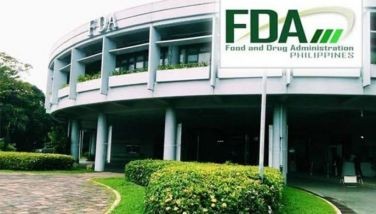Ethanol — a possible way out of oil dependence
July 3, 2004 | 12:00am
My attention was caught by that news story about four bus firms having agreed to run some of their buses on natural gas. This is reportedly a cleaner alternative to fuel some of the buses.
That reminded me of another vital venture that holds the promise of helping the country liberate itself from complete dependence on imported oil — and ease some of our foreign exchange outflow.
Actually, the proposal was discussed — and approved — by the Philippine Sugar Alliance weeks ago. This simply means that studies are now being done to assess the viability of extracting alcohol fuel direct from sugarcane instead of the by-product molasses as in the case of alcogas during the martial law years.
Joel Lora, president of the Confederation of Sugar Producers (Confed), told me that he favors using ethanol as additive to diesel fuel. The reason is obvious: most sugar farm implements and 70 percent of our vehicles run on diesel and thus, this would translate into a lot of dollar savings.
But that’s jumping the gun. There are now a lot of studies on ethanol manufacture that date back decades ago. But the point is this: the technology of ethanol production and use as fuel for trucks, tractors and cars is widespread. Brazil leads in this.
It was Greg Lopez, former president of the Philippine Sugar Technologists (PHILSUTECH) and now director of the Metro Bacolod Chamber of Commerce and Industry (MBCCI), who supplied me with copies of his proposal on ethanol.
He pointed out that the US will produce about 3.3 billion gallons of ethanol this year. This will fuel at least three million vehicles.
Brazil, as previously stated, was the first country that adopted a nationwide alcohol program. It has been operating some 500 distilleries in 1975 and produces about 10 billion liters per annum, fueling about nine million cars, trucks and tractors.
Some big automobile manufacturers in Brazil are churning out cars and other vehicles specifically designed to use ordinary alcohol or ethanol.
Thailand, too, has been into ethanol manufacture. Now all government vehicles of that country are using ethanol as fuel. Lopez pointed out that the latest reports indicate that there are now a total of 12 million to 13 million vehicles running on ethanol in Europe, North America and Brazil.
Australia reportedly set aside several millions of Australian dollars as incentives for vehicles that will shift to ethanol as the Australian sugar industry is ready to tackle ethanol production instead of just generating sugar from sugarcane.
You don’t have to dig in the ground to bring out fuel. You can grow it. It could be an inexhaustible source of energy.
That was the comment of a foreign businessman to Confed’s Rob Cuenca which he presented during the discussion on ethanol production recently.
Lopez, however, presented a more understandable outline of our dependence on oil as compromising our food and transportation security. "The secure operation of our agriculture and transportation is a basic and fundamental consideration," he pointed out.
He cited that more than 70 percent of our crude oil is imported from a source 5,000 miles away now facing troubles. This requires a chain of complex handling, storage and transportation before reaching our shores and the central refineries. The latter entails storage tanks for finished products, inter-island transport and storage facilities on every island, and so forth.
Lopez cited the current continuing unrest in the Middle East and the possibility that supply may be interrupted. And worse, he pointed out, the funds used to buy our oil are borrowed. This contributes to the negative trade balance of the country.
Lopez adverted to the passage of laws for grants and tax incentives of ethanol-producing countries that stimulate the development and improvement of alcohol as a viable alternative fuel.
For the moment, it can help solve the problem of oversupply of sugar. This year alone, the sugar industry is expected to produce 2.3 million metric tons of sugar as against the estimated demand of 1.9 million MT. The success of the industry per se now poses a major problem on what to do with the surplus. The world market price of sugar is below production cost. And the Sugar Regulatory Administration has been hard at work together with the Philippine Sugar Research Institute Foundation (PHILSURIN) to bring down production cost. But that is still a long haul.
In the long run, the industry must explore ways to implement its new thrust — the sugarcane industry instead of the sugar industry. That change of nomenclature points to a profound shift of focus from grinding out crystal sugar to diversified use of sugarcane.
According to Lopez (and Nene Trebol of Confed agrees with the concept), ethanol production is the obvious answer. Brazil has done it to address its major problem of oversupply of sugar. Thus, Brazil has cut down its oil imports and is churning out fuel which is indigenous and sustainable from sugarcane.
The Philippines, stressed Lopez, has underutilized lands and the climate that allows for year-round cultivation of crops that can be processed into alcohol. The alcohol industry can also generate millions of jobs where Filipino expertise can be employed.
He put it bluntly. A typical 120 klpd distillery can go into production of ethanol with its own 101,000-hectare adhered farms. This can produce 42 million liters of alcohol, generate 36.6 million kilowatt-hours of electricity, and as a bonus, also turn out dried distillers grain and organic fertilizer. There will be a sustained mode to irrigate only 1,000 hectares of the land.
This will cost $36 million to put up. "The foreign exchange component could be around 30-40 percent.
However, economies of scale and maximization of local components actual draw down progress and the offsetting effect of the dollar value of production that can substitute for oil imports will certainly lower the actual fund required.
But that’s just a proposal that must be further fleshed out. But Lopez made the point. We can develop our own sustainable source of energy and, at the same time, save the sugar industry from its dilemma.
The DOST already has its studies on this score. So with the SRA. The major emphasis of Lopez as well as the Philippine Sugar Alliance is political will and the decision by the President to go into a venture that will save the economy and assure our food and transportation security.
Well, it’s worth a second look.
ADDENDUM: Well, it’s not just the installation of national officials that has caught the attention of the country. All over the situation was the same. Local officials either continued their terms or assumed their posts as newly elected officials. That was what happened in Bacolod on July 1. Former Mayor Evelio Leonardia took over the helm from former Mayor Joy Valdez who lost her re-election bid to one who had lost the mayorship of Bacolod twice. Prior to his takeover, Vice Mayor Renecito Novero had taken his oath of office before Mayor Valdez. I just wonder whether he was going through a repeat ceremony yesterday afternoon at the Bacolod Plaza with Senator Jamby Madrigal. Leonardia, immediately after the Mass at the San Sebastian Cathedral, walked all the way from the public plaza to City Hall. He introduced his staff headed by city administrator Lorendo Dilag, city secretary Dr. Rogelio Balo and city legal officer Allan Zamora. The Sangguniang Panglunsod members, headed by Vice Mayor Novero, are Ana Marie Palermo, Lyndon Cana, Jude Thaddeus Sayson, Elmer Sy, Greg Gasataya, Dr. Reynold Iledan, Arturo Parreno, Al Victor Espino, Jocille Batapa-Sigue, Dr. Napoleon Cordova, Homer Bais, Marx Louie de la Rosa, Dindo Ramos and Catalino Alisbo. Leonardia’s first day registered an immediate impact. The city engineers and members of the 303rd Philippine Army immediately started the cleanup drive in Bacolod, beginning with the public markets where the trash piles were described as mountainous. They were scooped up by loaders and trucked away to the city’s dumpsite in Mandalagan... In Himamaylan City, Mayor Carminia Bascon and Vice Mayor Luz Bayot also resumed office with councilors Gerry Gamposilao, Len Gatuslao, Lando Da-anoy, Nene Tongson, Janet Villafranca, Nancy Javelosa, Lito Saguban, Tikboy Libo-on and Ramon Waldato. That’s just another one of the many takeovers all over Negros province.
That reminded me of another vital venture that holds the promise of helping the country liberate itself from complete dependence on imported oil — and ease some of our foreign exchange outflow.
Actually, the proposal was discussed — and approved — by the Philippine Sugar Alliance weeks ago. This simply means that studies are now being done to assess the viability of extracting alcohol fuel direct from sugarcane instead of the by-product molasses as in the case of alcogas during the martial law years.
Joel Lora, president of the Confederation of Sugar Producers (Confed), told me that he favors using ethanol as additive to diesel fuel. The reason is obvious: most sugar farm implements and 70 percent of our vehicles run on diesel and thus, this would translate into a lot of dollar savings.
But that’s jumping the gun. There are now a lot of studies on ethanol manufacture that date back decades ago. But the point is this: the technology of ethanol production and use as fuel for trucks, tractors and cars is widespread. Brazil leads in this.
It was Greg Lopez, former president of the Philippine Sugar Technologists (PHILSUTECH) and now director of the Metro Bacolod Chamber of Commerce and Industry (MBCCI), who supplied me with copies of his proposal on ethanol.
He pointed out that the US will produce about 3.3 billion gallons of ethanol this year. This will fuel at least three million vehicles.
Brazil, as previously stated, was the first country that adopted a nationwide alcohol program. It has been operating some 500 distilleries in 1975 and produces about 10 billion liters per annum, fueling about nine million cars, trucks and tractors.
Some big automobile manufacturers in Brazil are churning out cars and other vehicles specifically designed to use ordinary alcohol or ethanol.
Thailand, too, has been into ethanol manufacture. Now all government vehicles of that country are using ethanol as fuel. Lopez pointed out that the latest reports indicate that there are now a total of 12 million to 13 million vehicles running on ethanol in Europe, North America and Brazil.
Australia reportedly set aside several millions of Australian dollars as incentives for vehicles that will shift to ethanol as the Australian sugar industry is ready to tackle ethanol production instead of just generating sugar from sugarcane.
That was the comment of a foreign businessman to Confed’s Rob Cuenca which he presented during the discussion on ethanol production recently.
Lopez, however, presented a more understandable outline of our dependence on oil as compromising our food and transportation security. "The secure operation of our agriculture and transportation is a basic and fundamental consideration," he pointed out.
He cited that more than 70 percent of our crude oil is imported from a source 5,000 miles away now facing troubles. This requires a chain of complex handling, storage and transportation before reaching our shores and the central refineries. The latter entails storage tanks for finished products, inter-island transport and storage facilities on every island, and so forth.
Lopez cited the current continuing unrest in the Middle East and the possibility that supply may be interrupted. And worse, he pointed out, the funds used to buy our oil are borrowed. This contributes to the negative trade balance of the country.
For the moment, it can help solve the problem of oversupply of sugar. This year alone, the sugar industry is expected to produce 2.3 million metric tons of sugar as against the estimated demand of 1.9 million MT. The success of the industry per se now poses a major problem on what to do with the surplus. The world market price of sugar is below production cost. And the Sugar Regulatory Administration has been hard at work together with the Philippine Sugar Research Institute Foundation (PHILSURIN) to bring down production cost. But that is still a long haul.
In the long run, the industry must explore ways to implement its new thrust — the sugarcane industry instead of the sugar industry. That change of nomenclature points to a profound shift of focus from grinding out crystal sugar to diversified use of sugarcane.
According to Lopez (and Nene Trebol of Confed agrees with the concept), ethanol production is the obvious answer. Brazil has done it to address its major problem of oversupply of sugar. Thus, Brazil has cut down its oil imports and is churning out fuel which is indigenous and sustainable from sugarcane.
The Philippines, stressed Lopez, has underutilized lands and the climate that allows for year-round cultivation of crops that can be processed into alcohol. The alcohol industry can also generate millions of jobs where Filipino expertise can be employed.
He put it bluntly. A typical 120 klpd distillery can go into production of ethanol with its own 101,000-hectare adhered farms. This can produce 42 million liters of alcohol, generate 36.6 million kilowatt-hours of electricity, and as a bonus, also turn out dried distillers grain and organic fertilizer. There will be a sustained mode to irrigate only 1,000 hectares of the land.
This will cost $36 million to put up. "The foreign exchange component could be around 30-40 percent.
However, economies of scale and maximization of local components actual draw down progress and the offsetting effect of the dollar value of production that can substitute for oil imports will certainly lower the actual fund required.
But that’s just a proposal that must be further fleshed out. But Lopez made the point. We can develop our own sustainable source of energy and, at the same time, save the sugar industry from its dilemma.
The DOST already has its studies on this score. So with the SRA. The major emphasis of Lopez as well as the Philippine Sugar Alliance is political will and the decision by the President to go into a venture that will save the economy and assure our food and transportation security.
Well, it’s worth a second look.
ADDENDUM: Well, it’s not just the installation of national officials that has caught the attention of the country. All over the situation was the same. Local officials either continued their terms or assumed their posts as newly elected officials. That was what happened in Bacolod on July 1. Former Mayor Evelio Leonardia took over the helm from former Mayor Joy Valdez who lost her re-election bid to one who had lost the mayorship of Bacolod twice. Prior to his takeover, Vice Mayor Renecito Novero had taken his oath of office before Mayor Valdez. I just wonder whether he was going through a repeat ceremony yesterday afternoon at the Bacolod Plaza with Senator Jamby Madrigal. Leonardia, immediately after the Mass at the San Sebastian Cathedral, walked all the way from the public plaza to City Hall. He introduced his staff headed by city administrator Lorendo Dilag, city secretary Dr. Rogelio Balo and city legal officer Allan Zamora. The Sangguniang Panglunsod members, headed by Vice Mayor Novero, are Ana Marie Palermo, Lyndon Cana, Jude Thaddeus Sayson, Elmer Sy, Greg Gasataya, Dr. Reynold Iledan, Arturo Parreno, Al Victor Espino, Jocille Batapa-Sigue, Dr. Napoleon Cordova, Homer Bais, Marx Louie de la Rosa, Dindo Ramos and Catalino Alisbo. Leonardia’s first day registered an immediate impact. The city engineers and members of the 303rd Philippine Army immediately started the cleanup drive in Bacolod, beginning with the public markets where the trash piles were described as mountainous. They were scooped up by loaders and trucked away to the city’s dumpsite in Mandalagan... In Himamaylan City, Mayor Carminia Bascon and Vice Mayor Luz Bayot also resumed office with councilors Gerry Gamposilao, Len Gatuslao, Lando Da-anoy, Nene Tongson, Janet Villafranca, Nancy Javelosa, Lito Saguban, Tikboy Libo-on and Ramon Waldato. That’s just another one of the many takeovers all over Negros province.
BrandSpace Articles
<
>
- Latest
- Trending
Trending
Latest





























